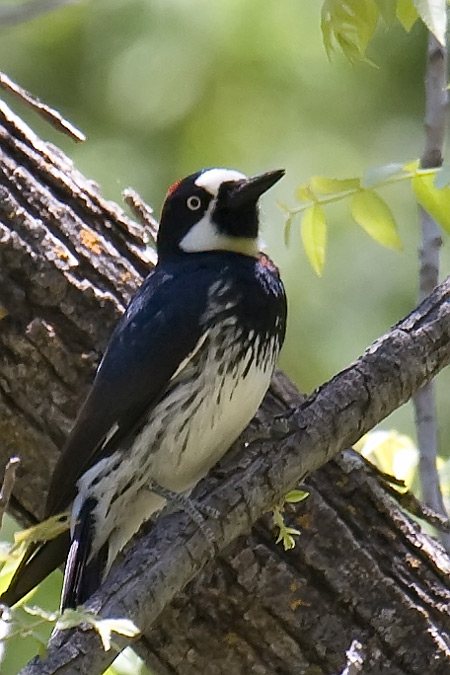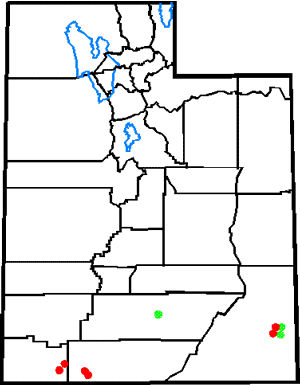|
Utah Bird Profile |
||||||||||||
|
Name roots: (E. acorn,
its favorite food) (Gr. Melos, "black"Gr.
Herpes, "a creeper"; |
||||||||||||
| In Utah: |
A rare permanent resident of southern Utah. Sightings in Utah Map of Sightings |
 by Kendall Brown |
||||||||||
| Characteristic behavior: |
Make nest holes and feed young as a colony. Female lays 4 or 5 white
eggs. Known for caching acorns in trees or telephone poles. Nests in a snag at a height of 20-25 (6-60) feet, in a cavity nest. This species is not a cowbird host. During the breeding season, this species is a frugivore: upper-canopy gleaner; insectivore: bark gleaner. |
|||||||||||
| Habitat: | Open forest, oak and pine-oak.
Breeds in Utah in desert oak habitat. Nests in large dead or dying ponderosa pines. |
|||||||||||
| How to find: | ...I have observed this
bird in four different places—all in southern Utah. Devil’s Canyon along
Utah State Highway 191 between Monticello and Blanding in southeastern Utah
has many big ponderosa pine trees with an oak understory which provides
suitable habitat. One or two birds have been seen on the south slope of the
Boulder Mountain in Garfield County between Grover and Boulder. There have
been sightings (although not recently) in the ponderosa-oak community of
Zion National Park between the town of Virgin and Kolob Reservoir... ~
Merrill Webb |
|||||||||||
|
| USGS Profile
(Geological Survey) |
US Winter Range Map |
US
Summer Range Map | |
||||||||||||
|
||||||||||||
|
Abbreviations | References | Legend
|
||||||||||||
